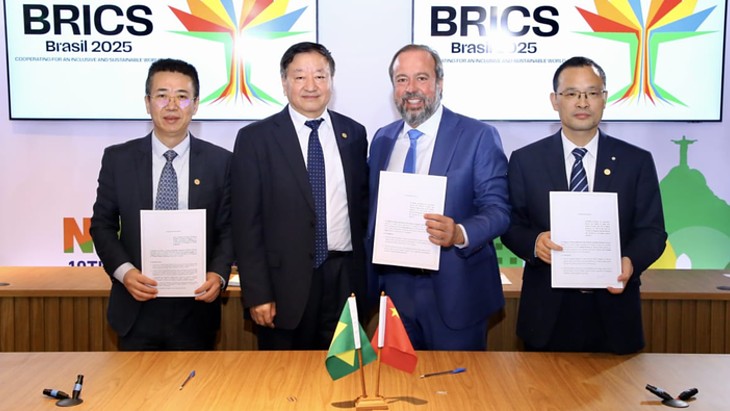The agreement was signed during the BRICS summit being held in Brazil and was part of a wider series of bilateral agreements. China General Nuclear Power Group (CGN) already invests in renewable energy projects in Brazil.
Minister of Mines and Energy Alexandre Silveira said: "We want to advance the partnerships with China to further expand the generation of clean and renewable energy in Brazil, strengthening our leading role in the global energy transition, in addition to developing the mineral chain in our country."
The agreement establishes an institutional platform for cooperation in research, development and innovation in sustainable energy technologies and the Brazilian ministry said that joint actions in research, development and innovation are planned, with a "focus on the technological modernisation of the mineral chain".
It also said the agreement includes the development of technical cooperation with "universities, research centres and public or private institutions specialising in mineral processing, materials science and sustainable resource management".
Background
According to World Nuclear Association, following active exploration in the 1970s and 1980s, Brazil has reasonably assured resources of 210,000 tonnes of uranium. There has been little exploration since the mid-1980s - but in August 2024 Brazil's fuel cycle company Industrias Nucleares do Brasil announced it was to resume exploration for uranium.
The country's three main deposits are: Pocos de Caldas in Minas Gerais state, where a uranium mine closed in 1997; Lagoa Real or Caetité in Bahia state, which has been operating since 1999; and Itataia, now called Santa Quitéria, in Ceará state, where the production of uranium as a co-product with phosphate is planned.
Uranium has been mined in Brazil since 1982, but the only operating mine is INB's Lagoa Real/Caetité mine, with a capacity of 340 tU per year. The mine has known resources of 10,000 tU at 0.3%U.
INB commenced developing the adjacent Engenho mine in January 2017, a 200-300 tU per year open pit operation. Production was initially planned from October 2017, but did not commence.
In January 2020, the country's energy minister reported that investment in INB would allow it to produce 150 tU annually from Caetité, starting in 2020, and expanding to 360 tU per year by 2023. The Santa Quitéria Consortium - a partnership between INB and privately owned fertiliser producer Galvani - expects to produce 2,300 tons of uranium concentrate annually from the Itataia deposit.
In 2022, Brazil produced 43 tU. All mined uranium is used domestically, after conversion and most enrichment abroad. The country's uranium requirements are currently about 339 tU per year.





_55401.png)
_23009.jpg)

_33392.jpg)






